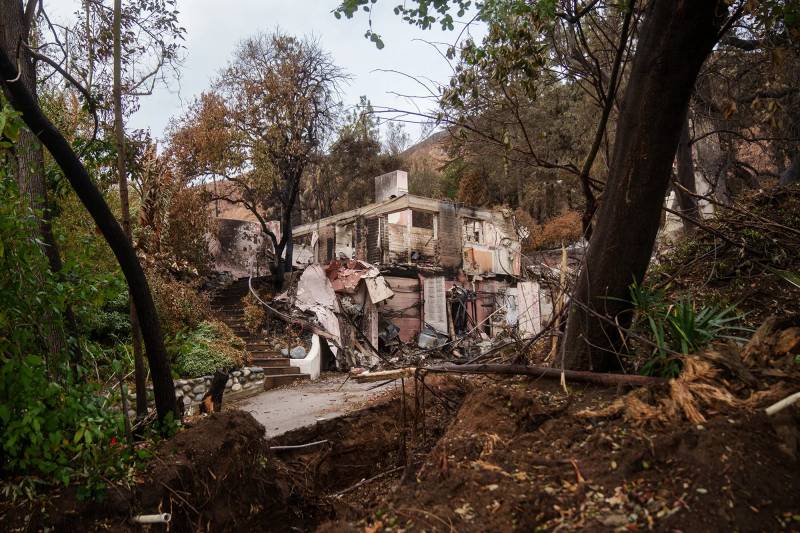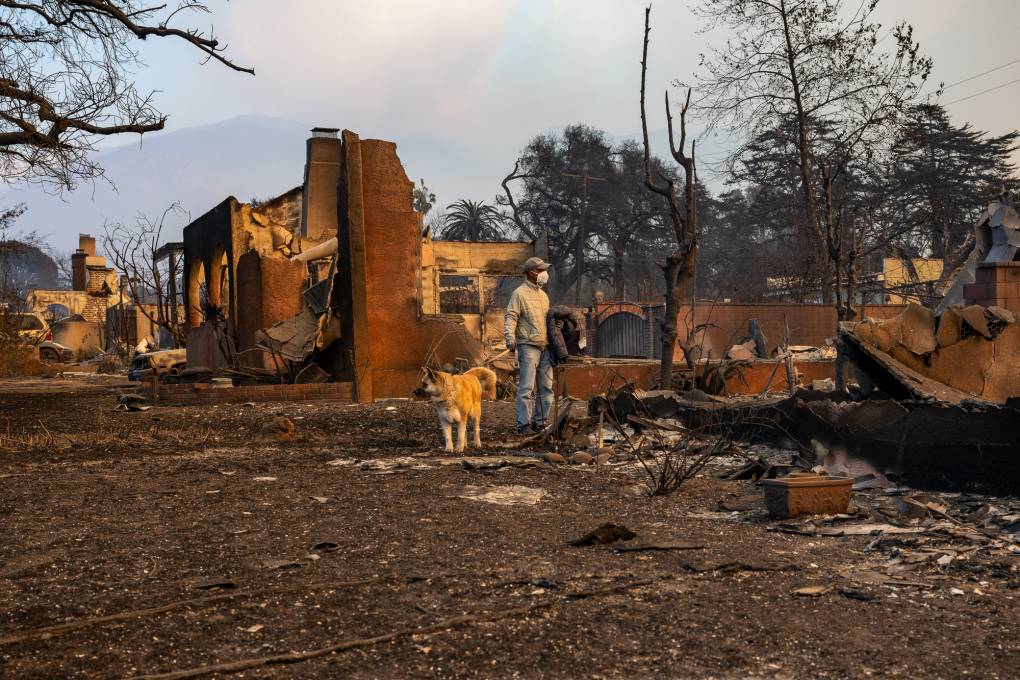In an emailed response seen by CalMatters, an insurance department compliance officer urged Thompson to tell her clients to file complaints with the department “so we can address their specific situation.”
CalMatters wrote about similar complaints against the FAIR Plan — delays in payments, slow response times, poor customer service — about a year ago. At the time, McLean said the plan was dealing with increased volume and had hired more staff to deal with it all. She also mentioned that the FAIR Plan had transitioned to a new software system and insurance agents and brokers were still learning it.
Asked what the FAIR Plan has changed in the past year, and why the same types of complaints persist, McLean again pointed to the plan’s “historic growth over the past several years,” and mentioned that it has hired even more staff to deal with claims from the January Palisades and Eaton fires.
Another bill that addresses the FAIR Plan’s financial stability is Assembly Bill 226, aimed at allowing it to spread out claims payments over time. It would do that by allowing the FAIR Plan to obtain bond financing through the California Infrastructure and Economic Development Bank.
Assemblymember David Alvarez, co-author of the bill with Calderon and Democrat from Chula Vista, told CalMatters: “We wanted to make sure if there was an event of (the L.A. fires’) magnitude, insurance companies wouldn’t use that as a reason to not cover California.”
He added that this legislation is just another “tool” to “maintain insurers in California, and get claims paid in a way that doesn’t cost consumers.” Alvarez also noted that the bill, which was first introduced last year, had no opposition. The FAIR Plan supports it.
Paying claims without full inventories
Senate Bill 495, by Sen. Ben Allen, a Democrat from El Segundo, would make California the only state in the nation to require insurers to pay claims in full without first seeing itemized inventories from policyholders.
It also gives consumers at least 180 days, up from 60 days, to provide proof of loss to their insurance companies after a declared state of emergency.
“A lot of insurance companies have already been doing this,” the senator said in an interview with CalMatters. “It’s a hassle for them to go through all the (inventory) lists, too.”
Allen said he has been going to town halls in his L.A.-area community and hearing from “people who have lost everything.” Getting rid of the inventory requirement “really cuts out an important barrier for a lot of people especially during a very difficult moment,” he said.
Lara backs the bill, and last week his department released a list of insurance companies that have agreed to pay at least 75% of contents coverage without a detailed inventory. A majority of companies operating in the state have — with some agreeing to provide 100%.
Insurance industry representatives opposed a similar bill in the 2004–05 legislative session and plan to do so again. Rex Frazier, president of the Personal Insurance Federation of California, said the bill could raise costs for insurance companies, which would pass the higher costs on to consumers. “Why require overpayment and require insurers to increase rates when people are already worried about the affordability of property insurance?” he said.
Insurance premium tax write-offs
Assembly Bill 1354, by Assemblymembers Heath Flora and Greg Wallis, would allow California taxpayers to write off the rising costs of their fire insurance premiums for the next five years. Flora, of Ripon, and Wallis, of Rancho Mirage, are Republicans.
The tax credits would reduce the amount of personal income taxes people would pay to the state. They would be based on the difference between their current premiums and their premiums from 2023, plus any current assessments or charges. If passed, the tax credit would apply to individuals with annual adjusted gross incomes not exceeding $150,000, with the limit being $300,000 for joint taxpayers. Owners of individual homes and properties with four dwelling units or less, and individual condos and mobile homes, would qualify as long as their property values do not exceed $3.3 million.
Flora told CalMatters he expects premiums to rise in the short term as the insurance department’s new regulations are implemented, but that he hopes it all means insurers will start writing policies in the state again.
“Our insurance industry is in shambles right now,” he said. “For the next few years it’s not going to be great. If we can allow our constituents to write off some of that increase, maybe they can get some sort of relief.”
But he doesn’t yet know what it would cost the state — and its taxpayers. Flora said he plans to ask the Legislative Analyst’s Office to look into it.
“There will be a hit to the general fund,” Flora acknowledged, adding that “in California, we spend a lot of money on a lot of different things. But fundamentally, people cannot buy homes without insurance.”
Amy Bach, executive director of the consumer advocacy group United Policyholders, does not support the bill and said “if we’re going to have insurance companies benefit from taxpayer funds paid toward premiums,” the state should extract some concessions from insurance companies, including getting them to write more policies. Bach said what she is in favor of is tax credits for mitigation expenses. For example, one bill would establish state grants for fire-rated roofs and other expenses, while another would allow for tax-free savings accounts for the purposes of mitigation or deductibles in case of a disaster.
Douglas Heller, director of insurance at Consumer Federation of America, agreed, saying taxpayer dollars would be better used preventing catastrophe and loss in the state.
Fossil-fuel company liability
Senate Bill 222, by Sen. Scott Wiener and several co-authors, would allow insurance companies and individuals to sue fossil-fuel companies over damages from climate-related disasters — part of a wave of efforts to hold the industry responsible for climate change. Hawaii is also considering a similar bill.
“Disasters that are so much more frequent and so much bigger in scale than five to 10 years ago (are) not random,” said Wiener, a Democrat from San Francisco, during a press conference. “That’s because of climate change being fueled by companies.”
The idea is that allowing individuals, insurers and the FAIR Plan to try to recoup some costs from disasters would provide an alternative to insurance companies simply raising their rates.
A business group that represents insurance companies warned against the legislation, saying it could lead to increased costs for consumers. Though California Business Roundtable does not publicly disclose all its members, it does include executives from the insurance and fossil-fuel industries, said Brooke Armour, president of the California Center for Jobs & the Economy, the group’s information arm.
Center for Climate Integrity, a co-sponsor of Wiener’s bill, has been trying for almost a decade to hold the fossil fuel industry accountable for climate change. Iyla Shornstein, political director at the group, said if nobody holds the oil industry responsible for disaster costs, insurance rates will only continue to “skyrocket and overburden victims.”



